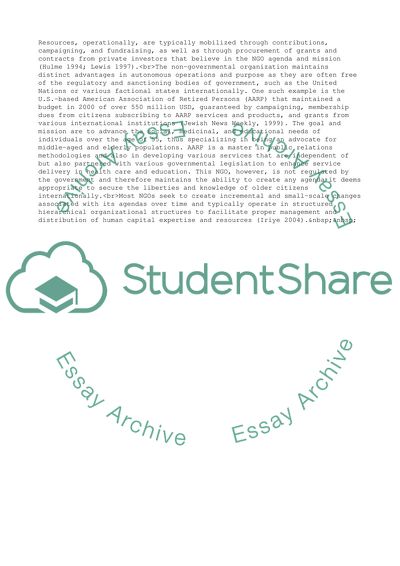Cite this document
(NGOs are an Effective Force in Processes of Conflict Resolution and Article, n.d.)
NGOs are an Effective Force in Processes of Conflict Resolution and Article. Retrieved from https://studentshare.org/business/1780026-managing-and-resolving-international-conflict
NGOs are an Effective Force in Processes of Conflict Resolution and Article. Retrieved from https://studentshare.org/business/1780026-managing-and-resolving-international-conflict
(NGOs Are an Effective Force in Processes of Conflict Resolution and Article)
NGOs Are an Effective Force in Processes of Conflict Resolution and Article. https://studentshare.org/business/1780026-managing-and-resolving-international-conflict.
NGOs Are an Effective Force in Processes of Conflict Resolution and Article. https://studentshare.org/business/1780026-managing-and-resolving-international-conflict.
“NGOs Are an Effective Force in Processes of Conflict Resolution and Article”, n.d. https://studentshare.org/business/1780026-managing-and-resolving-international-conflict.


